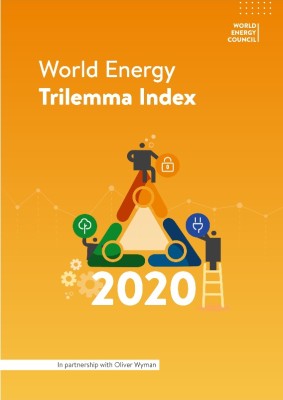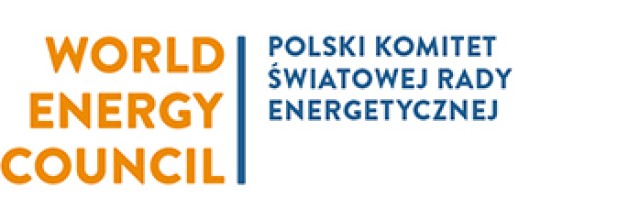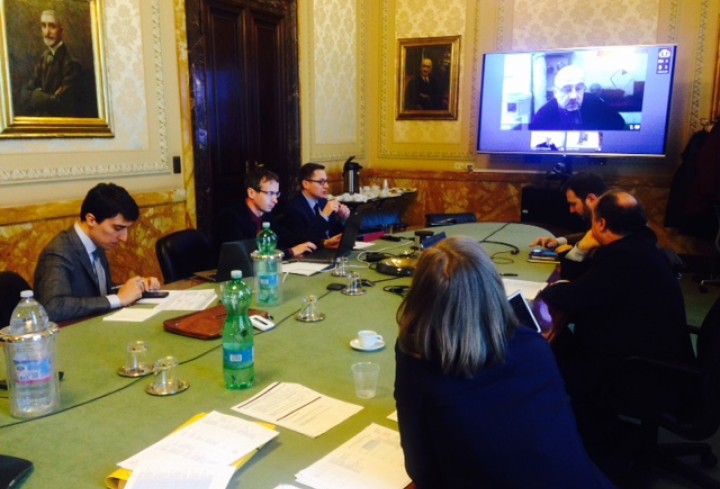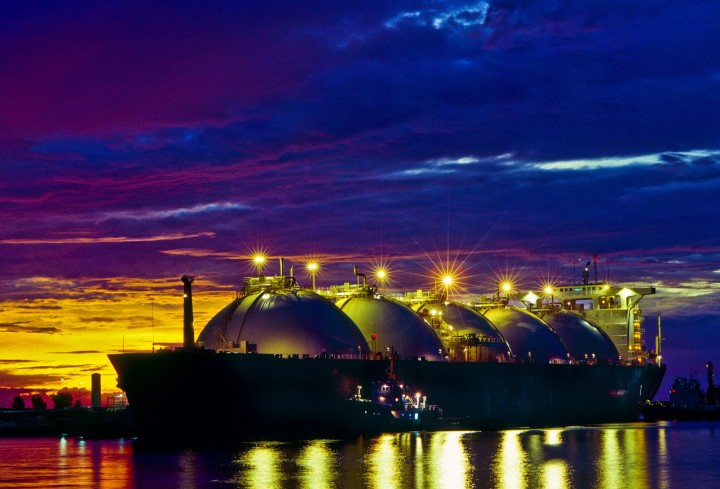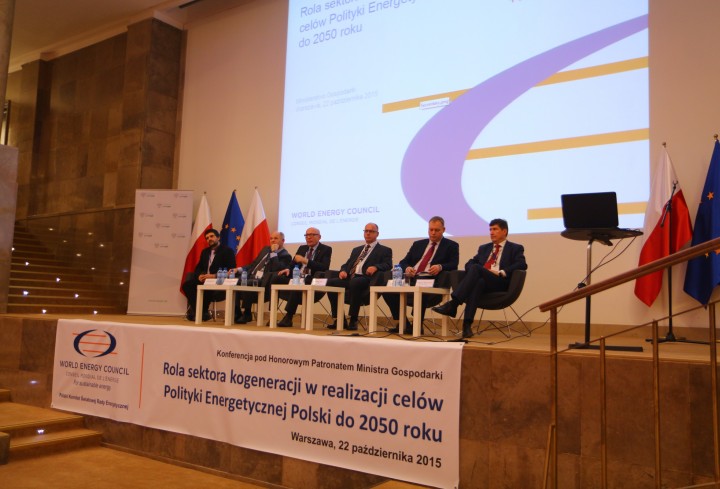The Polish Member Committee of the World Energy Council has been active since the creation of the Council in 1924, with the only break occurring during the Second World War. In the post-war period until 1997 the Polish Committee was functioning within the the energy ministry and was supervised by the energy ministers. In 1997 the Polish Committee of the World Energy Council was transformed into the self-governing association. The objective of the Polish MC WEC activity is to support the development and sustainable exploitation of national energy resources as well as to represent Polish energy sector in the World Energy Council and to promote its achievements at the World Energy Council forum.
Energy in Poland
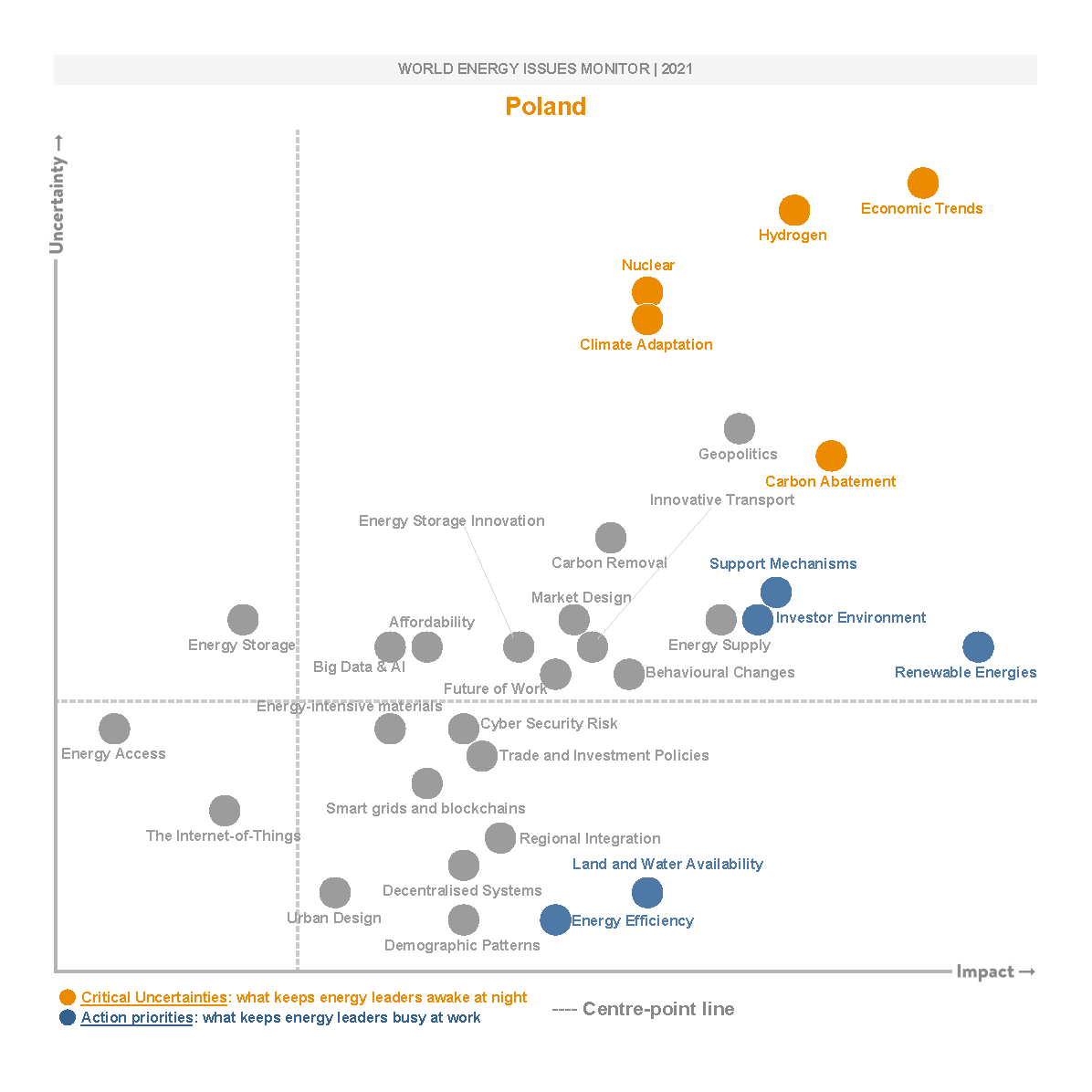
Comparing 2021 results to 2020, Poland’s energy leaders shifted away from perceiving geopolitical aspects as critical uncertainties. For 2021, Poland’s energy policy discussions are dominated by economic trends due to the economic implications of the Covid-19 pandemic.
Action priorities set by energy leaders predominantly revolve around renewable energy sources and connected support mechanisms. The binding and driving factor in the energy community will be climate adaptation, which is a crucial challenge for Polish energy leaders in 2021.
There is a huge transformation ahead for Poland which, in the next 10 years, will result in every third MWh of produced electricity coming from renewable units. In 2040, more than half of Poland’s electricity will be generated by emission-free units (renewable energy and nuclear). Considering the expected technological development, offshore wind farms will play a significant role in achieving the country’s renewable energy target, which is considered a high strategic priority for economic development in Poland.
Poland will also focus on the development of renewable energy sources at the local level, especially in terms of prosumers, increasing society's participation in energy transformation and allowing it to benefit as much as possible from the generated benefits. At the same time, Poland is still struggling with high prices of electric cars, which are very challenging, with the current subsidy systems seen as insufficient. It is anticipated that the impact of the economic pandemic may slow down the fleet replacement process.
The energy policy of Poland up to 2040 sets strategic investment directions aimed at modernising production capacities, taking into account the potential of the domestic economy, technological and human resources, and creating a leverage for economic development through the energy sector.
Poland recognises the opportunities arising from innovative hydrogen technologies and is focusing on creating instruments to support the new sector of low-emission hydrogen, which aims to support all types of hydrogen, resulting in a decrease of emissions in the economy. The uncertainty might be caused by technological difficulties in implementing this technology.
The update of the Polish Nuclear Power Program plans for 6 units (with 6-9 GW of nuclear power capacity) to be operational by 2043. The first nuclear reactor with a capacity of approximately 1-1.5 GW will be launched by 2033, and the next five will be commissioned every two years until 2043. The long-term perspective of this investment might give rise to the uncertainties expressed by energy leaders.
The Energy Policy of Poland to 2040 has ambitious aims for energy transition. The biggest opportunity will be offshore wind development. There will be a significant increase in installed capacity in renewable energy sources. The development of energy storage will be equally important. Furthermore, nuclear is due to play a vital role in energy transition by 2040. The use of renewable and all low carbon fuels, including hydrogen are priorities for the Polish energy community for 2021.
Energy Leaders assessed preparedness for pandemics, malicious risks and other factors as low or medium, even though Poland has a sound framework and policy in the area of risk management. The issue leaders assessed as important in this area is funding for prevention, preparedness, response and recovery, which should always be ’risk-informed’.
Downloads
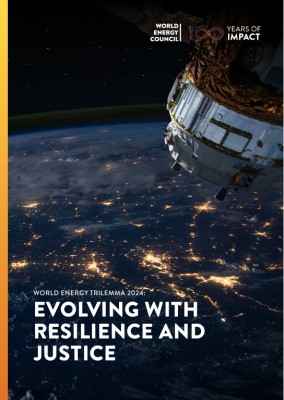
Poland World Energy Trilemma Country Profile 2024
Download PDF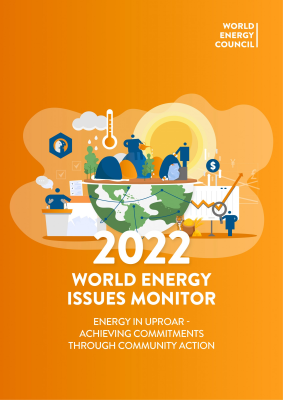
World Energy Issues Monitor 2022
Download PDF